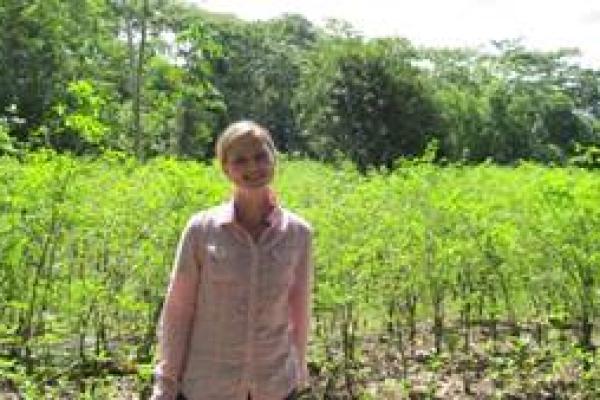
November 19, 2014
12:00 pm
-
2:00 pm
Knight House
Presentation:
“Challenging Drug War Orthodoxy in Bolivia: An Investigation of Coca-Based Livelihoods, the Legacy of International Drug Control Policy, and the Promises and Pitfalls of “Social Control” will be presented by Zoe Pearson, a PhD candidate in Geography at The Ohio State University.
Lunch will be provided for all participants. To comfirm your attendance and lunch reservation, please RSVP to wibblesman.1@osu.edu.
Immediately following the talk will be an Andeanist/Amazonianist syllabus exchange. This will be an opportunity for faculty to find out what courses other andeasnist and Amazonianistfaculty are offering on campus and to share ideas about resources, publications, films, methods, guest lectures, and events related to the courses we teach. Through this exchange, we hope to promote dialougue and faculty initiatives conducive to interdisciplinary collaborations. Faculty, lecturers, and graduate students welcome!
Zoe Pearson:
She has a graduate minor in Women’s, Gender and Sexuality Studies and is a Ph.D. candidate in the Department of Gegraphy. Her research interests include nature-society, feminist and political geographies, political ecology and political ecologies of health, “New Left” politics, US “drug war” policy and practice, and conflict over resources in the Americas.
Under coca union leader turned President Evo Morales, registered coca producers in Bolivia can now produce a limited amount of the culturally and medicinally important coca plant without fear of violent eradication. According to the United Nations, this new “social control” method of controlling coca leaf production has led to a marked decline in net land under coca cultivation in 2011, 2012, and 2013. And yet, Bolivia’s approach to what has long been the United States’ primary tactic of narcotics control in Andean South America, namely coca eradication, has gone mostly unrecognized and remains poorly understood elsewhere. My dissertation research investigates this approach in its broader geopolitical context, with an emphasis on how it affects the lives and livelihoods of coca growers and sellers who have long been impacted by international coca eradication efforts. In order to better understand the logics behind, failures of, and possibilities for drug control in the Americas, this project brings attention to Bolivia's new approach and more generally to some of the grounded and embodied dynamics of illegal and illicit substance control. In this workshop she will share some of her current dissertation writing, welcoming feedback and suggestions from the audience.
